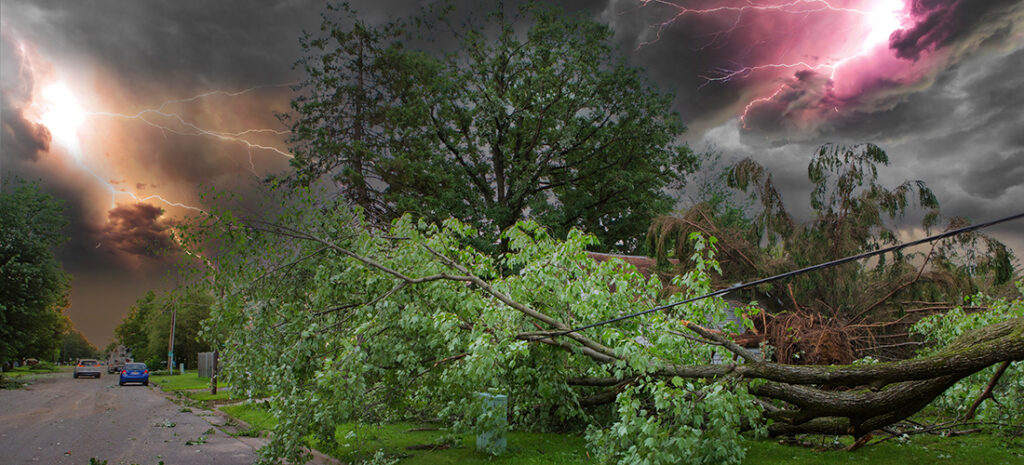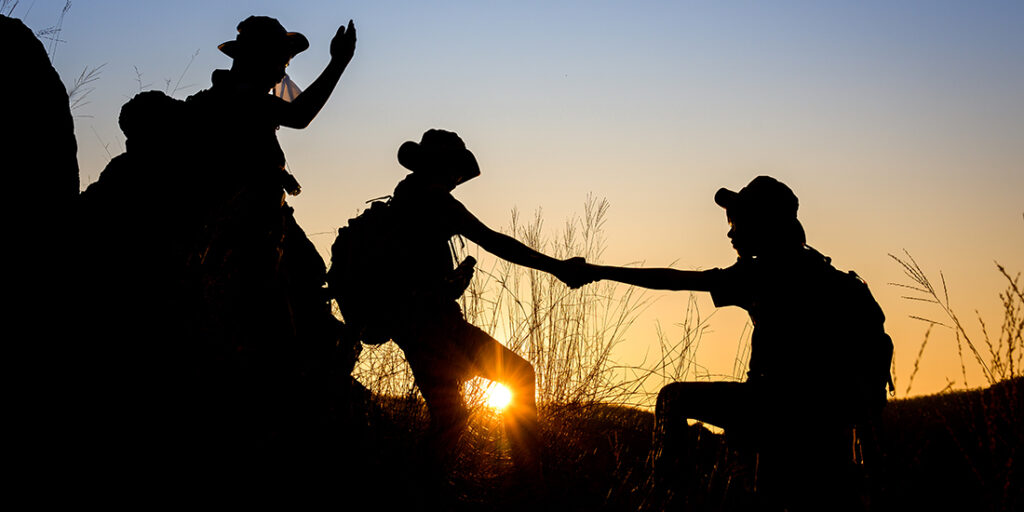COMMUNICATION & INTEROPERABILITY

FIFA, Terrorism, and Preparedness for the 2026 World Cup in the U.S.
- Adam Johnson
The quadrennial championship of the most popular game in the world—soccer—is coming to the United States in 2026, and fans from around the world will be in attendance. With the world watching the events, terrorists may try to capitalize on the World Cup’s notoriety. Local governments and community members need to prepare.
Most Recent

John Wilson on Knowing What to Do When Stuff Hits the Ground
Domestic Preparedness
August 13, 2025
John Wilson is well-versed in emergency management and hurricane preparedness. In this discussion with Domestic Preparedness, he shares his lessons learned about the evolution of emergency management and the evolving challenges that preparedness professionals face today.

Reimagining Readiness: The Future of Emergency Management in Homeland Defense
Cody Santiago
August 6, 2025
Underdeveloped civilian emergency management integration with Department of Defense resources results in gaps in preparedness, intelligence-sharing, and response coordination. A more integrated framework can incorporate emergency management as a core pillar of homeland defense, improve intelligence-sharing, and strengthen resilience.

The Optimism Bias Trap: Rethinking Threat Preparedness
Joshua Sullivan
August 6, 2025
Mass violence increasingly targets ordinary people performing routine duties in uniform, behind the wheel of marked vehicles, or responding to emergency calls. This evolution in tactics calls for a fundamental reassessment of preparedness strategies. Yet, a troubling obstacle remains within many public safety agencies: optimism bias.

Global Health Crises: Leadership Matters
Richard Serino and Michelle Pratt
July 30, 2025
Without strong leadership, health systems are susceptible to policy missteps, financial pressures, and inadequate responses during emergencies. As crises develop and clearer data on risk and vulnerability emerge, effective leaders must act decisively and foster cross-sector collaboration. Crisis leadership can be a catalyst for global resilience.
COMMUNICATION & INTEROPERABILITY ARCHIVES
Global Health Crises: Leadership Matters
Richard Serino and Michelle Pratt
July 30, 2025
Without strong leadership, health systems are susceptible to policy missteps, financial pressures, and inadequate responses during emergencies. As crises develop and clearer data on risk
Not Optional: The Public Health Consequences of Dismantling Emergency Infrastructure
Andrew D. Pickett and Raphael M. Barishansky
July 30, 2025
During the COVID-19 crisis, decades of investment in healthcare emergency infrastructure—funded through two key federal programs—allowed emergency operations centers to mobilize rapidly, hospital coalitions to
Wildfires: The Growing Public Health Threat
Robert LaMacchia
July 23, 2025
Protecting people from wildfire smoke is a necessary extension of environmental resilience and public health strategy. Public health systems must adapt to effects from respiratory
Fast, Flexible, Creative: What Emergency Managers Can Learn From Entrepreneurs
Bear Afkhami
July 23, 2025
Start-ups are known for their self-reliance toward success. Especially in light of expected reductions in federal funding, emergency management shares similar entrepreneurial attributes, and emergency
A Seven-Phase Framework for Organizational Resilience
Michelle Colosimo
July 16, 2025
Organizations cannot always dictate the course of a crisis—whether an incident, active threat, or natural disaster—but they can shape their own readiness and response. This
Communication and Decision-Making During COVID: Lessons From Virginia
Erin Sutton
July 16, 2025
Traditional hierarchical structures present challenges when crises span jurisdictions, agencies, and organizations. Lessons learned from Virginia’s COVID-19 response revealed a different path forward—one that prioritized
Follow Us
Get Instant Access
Subscribe today to Domestic Preparedness and get real-world insights for safer communities.
COMMUNICATION & INTEROPERABILITY
Most Recent

Integrating Research Labs Into Emergency Response
Joshua Dise and Anthony Falzarano
July 9, 2025
In today’s complex threat environment, the ability to move from pathogen detection to action depends on infrastructure and intentional integration

Mitigating Emerging and Re-Emerging Public Health Threats
Raphael M. Barishansky
July 9, 2025
Preparedness is not a luxury—it is essential for global health security. Emerging diseases, antimicrobial resistance, and re-emerging threats like measles

Law Enforcement Collaboration Within Multidisciplinary Teams
Richard Schoeberl and Anthony (Tony) Mottola
June 25, 2025
Multidisciplinary teams are inherently collaborative and benefit intricate police cases and vulnerable populations. Adopting the expertise of professionals in medicine,

A Proven Path: Scouts and the Operational Value of Prepared Youth
Ethan Beaty
June 4, 2025
Scouts have been trained to stay calm under pressure, take meaningful action in moments of uncertainty, and support others in
COMMUNICATION & INTEROPERABILITY Archives
Global Health Crises: Leadership Matters
Richard Serino and Michelle Pratt
July 30, 2025
Without strong leadership, health systems are susceptible to policy missteps, financial pressures, and inadequate responses during emergencies. As crises develop and clearer data on risk
Not Optional: The Public Health Consequences of Dismantling Emergency Infrastructure
Andrew D. Pickett and Raphael M. Barishansky
July 30, 2025
During the COVID-19 crisis, decades of investment in healthcare emergency infrastructure—funded through two key federal programs—allowed emergency operations centers to mobilize rapidly, hospital coalitions to
Wildfires: The Growing Public Health Threat
Robert LaMacchia
July 23, 2025
Protecting people from wildfire smoke is a necessary extension of environmental resilience and public health strategy. Public health systems must adapt to effects from respiratory
Fast, Flexible, Creative: What Emergency Managers Can Learn From Entrepreneurs
Bear Afkhami
July 23, 2025
Start-ups are known for their self-reliance toward success. Especially in light of expected reductions in federal funding, emergency management shares similar entrepreneurial attributes, and emergency
A Seven-Phase Framework for Organizational Resilience
Michelle Colosimo
July 16, 2025
Organizations cannot always dictate the course of a crisis—whether an incident, active threat, or natural disaster—but they can shape their own readiness and response. This
Communication and Decision-Making During COVID: Lessons From Virginia
Erin Sutton
July 16, 2025
Traditional hierarchical structures present challenges when crises span jurisdictions, agencies, and organizations. Lessons learned from Virginia’s COVID-19 response revealed a different path forward—one that prioritized
Follow Us
Get Instant Access
Subscribe today to Domestic Preparedness and get real-world insights for safer communities.

